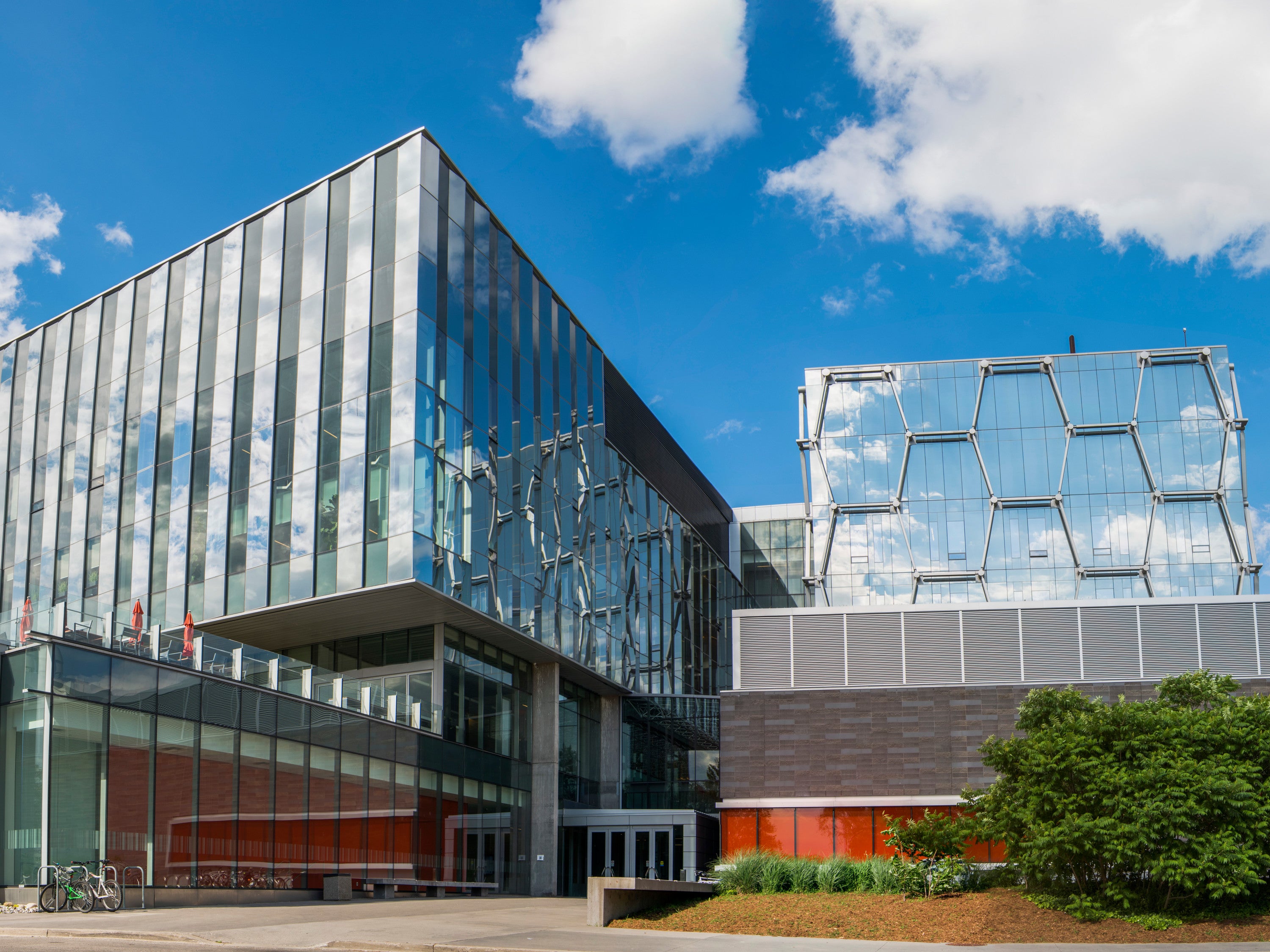
Just as advancements in microelectronics led to the transistor, the computer, the Internet, and today’s smartphones and mobile devices, quantum information and nanotechnology are transforming the next generation of information technologies.
The application of discoveries borne out of fundamental research at the University of Waterloo in advanced fields of mathematics, quantum physics, and chemistry promises to deliver technologies in the 21st Century that will be as revolutionary in their impact as the industrial revolution of the 19th Century or the information revolution of the 20th Century.
One of the centres at the leading edge of discovery at Waterloo is the Institute for Quantum Computing (IQC). Bringing together internationally recognized researchers from the Faculties of Mathematics, Science, and Engineering, IQC is one of the most advanced research facilities in the world, where the biggest ideas are about what happens on the smallest of scales.
Harnessing the rules of quantum mechanics
As the size of the transistor approaches the atomic scale, the rules change. Quantum mechanics come into play and rule the world of atoms and molecules. Quantum information science provides the language to manipulate information-using systems at these scales and to navigate the nanoscale world. By harnessing the rules of quantum mechanics, information can be processed with incredible efficiencies; efficiencies with no counterpart in today’s classical computers. Quantum research at Waterloo has already led to commercialized quantum technologies in areas such as oil exploration and scientific devices, and promises to continue to revolutionize an ever increasing number of fields through its application.
Exciting nanotechnology research is underway in the Faculties of Engineering and Science. The intersection of nanotechnology with many other fields is resulting in virtually unlimited opportunities for novel research. Waterloo’s footprint in this area is broadly based and includes expertise in organic optoelectronics, photonics, photovoltaic devices, semiconductor quantum devices, nanoelectronics, micro- and nano-fabrication, microfluidics, nanomaterials, and micro-electromechanical systems. Applications of nanotechnology at Waterloo include the development of methods for targeted drug delivery inside the human body, the use of magnetic nanoparticles for water treatment, and nanocomposite membrane fabrication for use in fuel cells. At the Waterloo Centre for Automotive Research (WatCAR), researchers are exploring the possibility of reducing the size of automotive components and parts to the nanoscale, which will directly contribute to reduced vehicle weight and improved fuel economy.
Waterloo will continue to focus on transformational research in quantum information science in four main areas: quantum computing, quantum communication, quantum sensors, and quantum materials. It is expected that quantum research at Waterloo will help to underpin a global quantum industry embracing technologies that have broad societal impact in areas such as material science, information security, health diagnostics, and much more that has not yet been imagined.